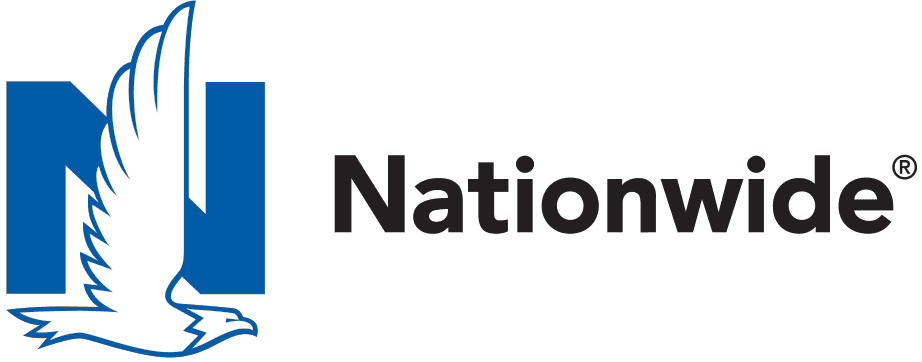
Related Topics
What’s the secret to financial well-being and peace of mind in retirement?
No, it’s not winning the lottery. Rather, it’s thinking ahead—and using those insights to create a solid financial plan well before you leave the workforce.
Whether you’re concerned about saving enough money or paying off debt, we’ll explain simple strategies you can use to build your retirement confidence and get on track to financial stability in your later years.
5 things to consider when planning for retirement
1. Get a handle on how much you’ll need
How much money will you require to retire comfortably? Start by doing a little bit of math. It may seem like a shot in the dark—after all, you have no real idea how long your retirement will last, and there are many variables to consider.
However, certain formulas can help you get close to a realistic number, which will enable you to create a savings goal. One expert rule of thumb is to save 10 times your pre-retirement annual earnings by age 67 and plan to live on 80% of your previous annual income.
Another way to predict how much money you’ll need in retirement is the "4% rule.” This rule suggests retirees can withdraw 4% of their savings in the first year of retirement, adjusting this amount for inflation each subsequent year, without depleting their savings over a 30-year retirement period.
You can also try one of the many retirement calculators available online. These tools work by estimating how much money you’ll need to retire based on factors like your current age, target retirement age, life expectancy, current savings, expected future contributions, investment returns, and expected expenses in retirement. While these calculations won’t be exact, they will give you another tool to help you gauge whether you’re on a path to retire securely.
2. Take charge of your debt
Debt among adults age 65 and older has skyrocketed in recent years. From 1992 to 2019, the share of older households with debt rose from 43% to 62%, while the median amount of debt among these households increased from $7,294 to $34,0001. According to the Nationwide Retirement Institute Peak Retirement Survey2, 8 in 10 older Americans said their debt impacts their retirement finances.
If you have debt—whether it’s credit cards, medical bills, or a mortgage—paying it down can help you free up your retirement budget. Start by reviewing your current income and expenses and figuring out the maximum you can afford to pay back each month. The goal is to develop a systematic plan to chip away at your debt while balancing your retirement savings goals.
If you’re struggling to make minimum payments, don’t be shy about contacting lenders. Many credit card companies, for example, will work with you to establish a comfortable payment schedule. Debt consolidation is another option to consider, allowing you to roll all your balances into one loan at a lower interest rate and pay down your debt faster.
3. Maintain an emergency fund
An emergency fund can help you cover unexpected major expenses (e.g., home repairs) or income disruptions that might affect your ability to save for retirement.
Start by setting a savings goal based on three to six months of expenses. Open a separate savings account dedicated solely to your emergency fund—and automate regular contributions from your paycheck, if possible. Avoid dipping into your fund for unnecessary expenses, and reassess and adjust your savings goal over time as needed.
By contributing regularly to your emergency fund (and being disciplined in its use), you can build a financial safety net and keep your retirement savings goals on track.
4. Plan your Medicare strategy in advance
Health insurance is a vital part of your financial security in retirement. Although you’ll qualify for Medicare at 65, it doesn’t cover everything—and it’s not free.
Understanding how Medicare works can help you estimate your out-of-pocket health care costs in retirement. It can also empower you to choose the most budget-friendly plan for your needs. Learn all you can about Medicare Parts A, B, C, and D as well as Medicare Advantage—which is an alternative way to receive your Medicare coverage. You’ll also want to explore how supplemental insurance (Medigap) can help you “fill in the gaps” where Medicare does not provide coverage.
In addition, be sure to evaluate your Medicare eligibility and enrollment timelines, and plan accordingly so that you can avoid any costly lapses in coverage as you near retirement.
5. Take steps to ensure a guaranteed retirement income
Outliving retirement savings is a fear of many pre-retirees. But you can build your financial security by including multiple sources of guaranteed income in your retirement plan. Guaranteed income refers to a consistent, dependable flow of cash you can rely on to cover your expenses for as long as you live.
Social Security is one form of guaranteed income, and being strategic about when you claim benefits can help you maximize your monthly payment. But for most retirees, these payments are not nearly enough.
According to Nationwide's Peak Retirement Survey:
- More than 1 in 3 retirees receive less in Social Security benefits than they expected to when working.
- Just 41% expect the program to exist in its current form for the full length of their retirement.
- Social Security benefits replace less than half of pre-retirement income, according to 84% of retirees surveyed. One quarter of retirees said it covers less than 10% of their previous income.
- Drawing benefits before full retirement age can result in a reduced monthly payment amount. Among 60- to 65-year-olds currently working, 14% said they expect to take Social Security early. Yet among retirees in this age group who were surveyed, 58% took Social Security early.2
To increase your guaranteed income in retirement, consider other sources of reliable cash flow. This might include passive income through investments (e.g., dividend-paying stocks) and paid-off rental properties. In addition, annuities can help provide peace of mind by ensuring fixed payments that aren’t subject to market risks.
Don’t hesitate to seek professional advice
If you have an employer-sponsored retirement plan, ask your provider about educational resources that can help inform your planning. Some plans even include access to a financial planner.
"Having someone who’s knowledgeable about financial planning is definitely important. That’s where a certified financial professional can help you develop a plan that’s tailored to meet your long-term retirement and savings goals,” said Kristi Martin Rodriguez, Senior Vice President, Nationwide Retirement Institute.
Whether you manage your own planning or consult an expert, be proactive and start as early as possible.
Building your retirement confidence takes time. But with some careful preparation, financial discipline, and professional advice if you need it, you’ll be well on your way to the retirement you’ve always dreamed of.
This content on financial myths in retirement was developed in partnership with Nationwide (NFM-23836AO). Learn more about the variety of solutions that can help add protected monthly income to your portfolio.
Sources
1. Demographic and Socioeconomic Characteristics of Older Households with Debt: 2019. August 9, 2021. Found on the internet at: https://crsreports.congress.gov/product/pdf/R/R46870
2. Nationwide Peak 65 Survey Insights Report (PPT). December 2023.




